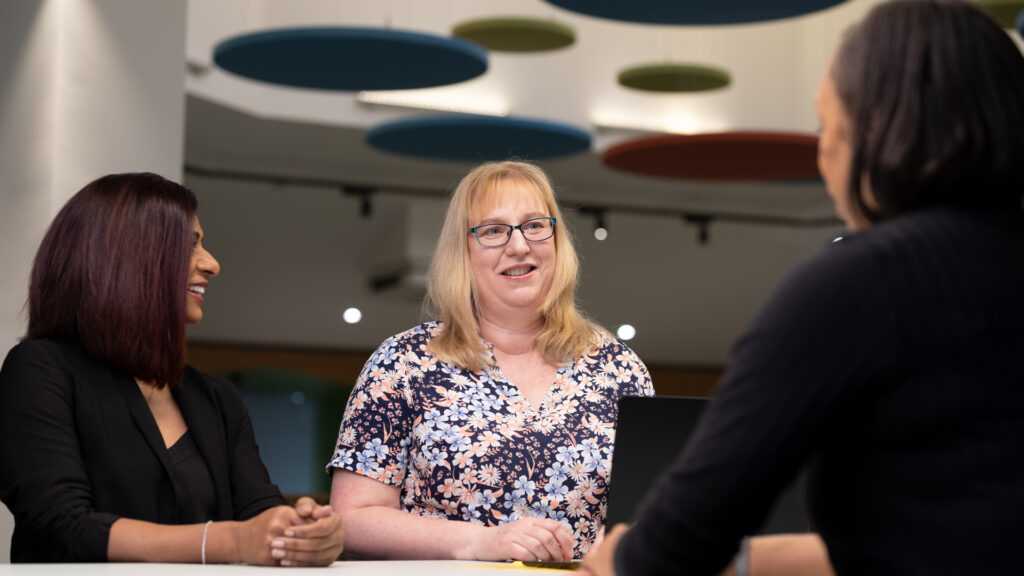The Home Office Digital team enables the Home Office to keep the UK safe and secure. They do this by designing, building and running the services that help people apply for visas or passports, support policing and counter-terrorism operations, and protect the UK’s borders.
Team members have specialised knowledge and a calling to build on it. We want the best people to come to the Home Office and work in the diverse roles and communities they’re passionate about. This is how we produce exceptional outcomes.
The Home Office has created a government-leading bespoke career framework that enables career planning, while ensuring our people can be the best they can be. The framework includes Heads of Role, who are industry specialists. They build communities, set standards for what ‘good’ looks like, and ensure we have the right people in the right jobs at the right time.
We also have a Profession Management unit, which aims to provide the best professional experience to all our technical staff with a real passion for – and focus on – continuous professional development. We invest heavily in our people as part of growing our collective capability.

What you could be doing
The Government Digital and Data (GDaD) Profession Career Framework features over 150 defined roles, grouped into 9 Clusters – with staff often employed across fast-paced, multi-disciplinary teams.
The clusters are:
Architecture
Architects are accountable for the architectural design of complex enterprise systems – mainly business, data, security systems and the enabling technology components.
Cyber Security
Members of this cluster work with other parts of the Home Office to secure the systems and environments we rely on to achieve our objectives.
Data
The Data cluster leads the Home Office in delivering joined-up intelligent services that unlock the value from data and deliver better outcomes.
Engineering
Engineers design, build and implement technologies and solutions. These include compute, storage, networking, physical infrastructure, software, commercial off-the-shelf (COTS) and open-source packages and solutions.
IT Operations
Members of this cluster provide critical service support for vital national infrastructure and Home Office services, monitoring and controlling them to sustain Live services.
Product
Members of this cluster work on products across high-profile business priorities which impact on the everyday lives of millions of people.
Quality Assurance and Testing
Members of this cluster use new technology, platforms and ways of working to help development teams meet user needs and make the delivery of services even better.
Technology Delivery Management
Members of this cluster manage the delivery teams providing digital solutions to some of the Home Office’s highest priorities.
User Centred Design
Members of this cluster design products and services in collaboration with the people who will use them, creating simple, clear and joined up user experiences that help people to achieve their goals.

The benefits of working in a Home Office Digital role at the Home Office
Many roles in Home Office Digital can attract a digital capability allowance, such as Recruitment and Retention Allowance or a Pay Framework Allowance, payable in addition to salary. You can find more information about these allowances on the Digital Capability Allowance information page. This information will always be listed on specific job adverts too.
Find out more about working in Manchester , Sheffield and Glasgow.
You can find answers to some commonly asked questions on our FAQ’s page.
Keep up with what we’re doing
You can keep up with our work and what we’re doing on our blog pages.
You can also read our strategy document, which sets out a framework to evolve Digital, Data and Technology in the Home Office over the next four years.




